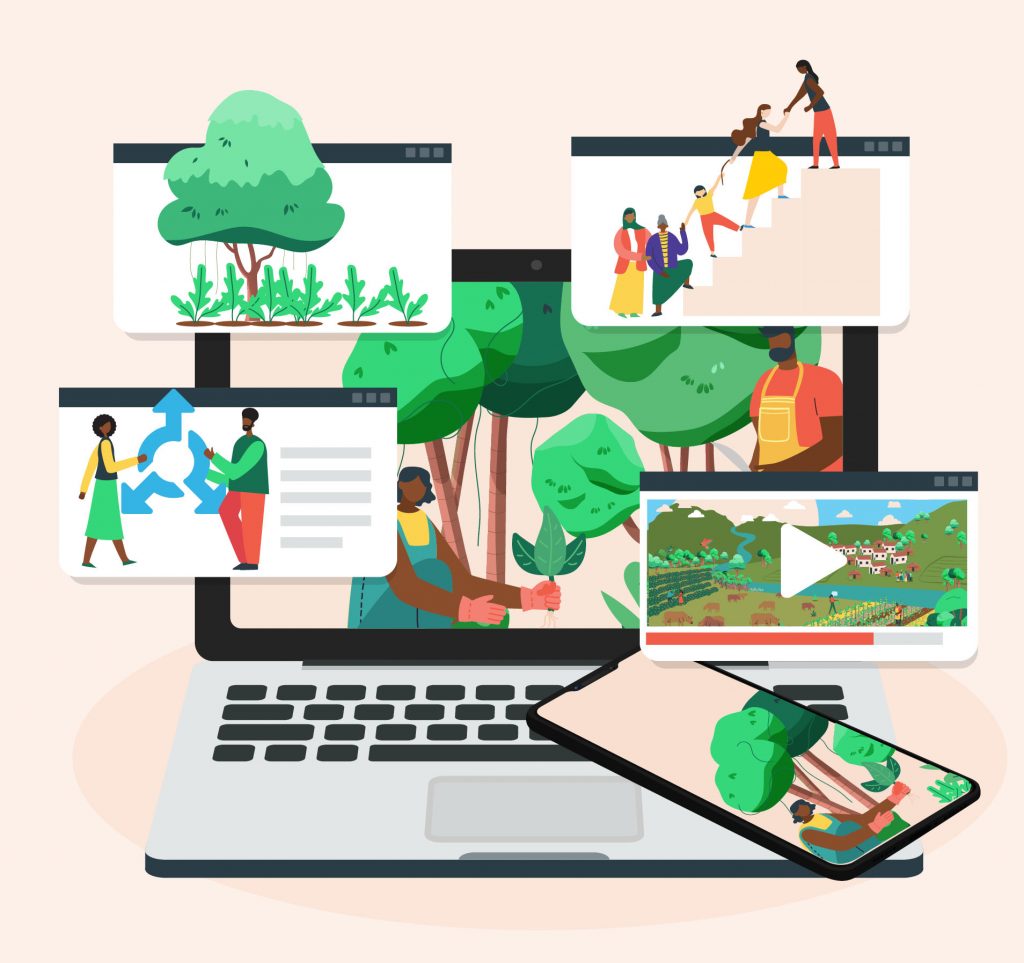The world has set itself important objectives in terms of land restoration, under the UN Decade of Ecosystem Restoration. But restoration should be as much about people as about ecosystems. There is today a growing recognition of the importance of adopting a people-centered approach to restoration, as promoted by the CGIAR Research Program on Forests, Trees and Agroforestry (FTA).
People-centered approaches mean giving priority to gender and social inclusion in the implementation of global ecological restoration to avoid perpetuating marginalization, inequalities, and environmental degradation. Yet, despite international agreements and national and local commitments, barriers to enhancing equality and inclusion remain and continue to limit the opportunities and wellbeing of women and girls, as well as groups marginalized by ethnicity, socio-economic status, or other factors of discrimination. This also hinders reaching the restoration objectives themselves, and their sustainability.
A common challenge in enhancing gender and social inclusion in the field of forest and landscape restoration (FLR) is the lack of easily accessible, practical learning tools.
The Gender and Inclusion in Forest Landscape Restoration course aims to strengthen the skills and knowledge of FLR stakeholders about policies, approaches, and practices that strengthen integration of gender and social considerations in FLR. The goal is to help course participants find inspiration and practical guidance to contribute towards more gender-responsive FLR to generate equitable and sustainable restoration outcomes.

The e-learning course addresses the needs and priorities, as well as capacity and knowledge gaps, that emerged from an extensive consultation process with multiple restoration stakeholders including NGOs, national governments, research organisations and universities, and grassroots organisations. The course structure, design and functionality address these identified needs and priorities.
The course consists of five modules featuring relevant evidence, case studies, tools and good practices developed by FTA and partners, packaged in an accessible and interactive online learning format.

Each module is a certified training in and of itself, and therefore interested learners have the choice to complete one or more modules. The course is designed to be easily accessible to all: learners have the option to complete it online, off-line or on their mobile phone. Learners will have access to an extensive resource centre to assist with further learning. Each of the modules, which include videos, interactive exercises, and a guide, takes approximately 40 minutes to complete, with the five-module course requiring approximately 3 hours. The learning platform the course is hosted on, which requires participants to register and log in, allows learners to pick up the course where they left off, for a self-paced journey. A certificate of completion is delivered at the end of the full course and of individual modules.
It is hoped that the course will strengthen the capacity and knowledge of a range of actors to achieve more inclusive and equitable restoration initiatives.
Access the Gender and Inclusion in Forest and Landscape Restoration e-Learning course now!











